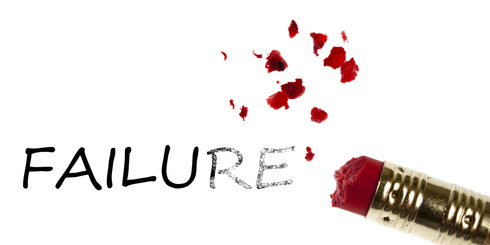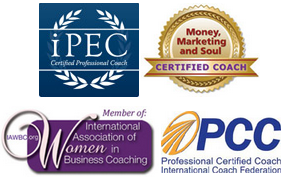How to Eliminate Failure Forever
 Failure. What does that mean to you? Does the thought evoke a sinking feeling in the pit of your stomach? Can you feel the anxiety and tightness in your chest?
Failure. What does that mean to you? Does the thought evoke a sinking feeling in the pit of your stomach? Can you feel the anxiety and tightness in your chest?
No one wants to fail. We all want to succeed at what we do!
But what if I told you there are people who never fail? Who never feel those yucky feelings? In fact, what if I told you that YOU could be one of those people?
It’s true. I can say with absolute conviction that you never need to fail again. Not only that, but I’m going to give you the magic key to eliminate failure forever, right here and now.
First, we need to understand where the idea of “failure” comes from.
Think about your classmates in school. The ones who got D’s or F’s were considered dumb, and the ones who got A’s were considered smart, Right? It was just how it was. In other words, you either had it or you didn’t.
Failure is a mindset! We’ve been programmed from childhood to think if something doesn’t go the way we expect, or doesn’t produce the results we desire, we’ve “failed” and we make that mean a whole lot about us – none of which feels good.
It’s been ingrained in us that success is achieved because we’re smart or talented, and failure happens because we’re dumb or “not good enough.”
So as adults, when a job, project or launch doesn’t go as well as expected, or produce the results desired, the temptation is to blame ourselves: “I’m lousy at this, I failed, I’m just not good at it, I can’t do it well.”
This mindset is a recipe for misery. Because we’re not always going to be instantly successful at everything we do. And the danger is, if we decide we’re “just not good at something,” we might quit, and then we’ll never achieve our goals.
I recently had a very successful teleclass “launch” in my business, but it didn’t happen because I was “smart” or “talented.” It happened because I’ve done launches in the past with mixed results – some with great results, and some not so great. I learned from experience.
Entrepreneurs who never fail view a lack of results as feedback, not failure.
Rather than beat themselves up for not succeeding, they say to themselves “Ok, that didn’t work, why not?” They analyze, make corrections, and try again.
They take an objective look at what they can change, so as to have a better result the next time. Then when they succeed in the future, they say to themselves: “Yes! I worked hard on that, and it finally produced the results I was looking for!”
Here’s the key difference: entrepreneurs who never fail attribute success to effort, and those who do “fail” attribute success to innate talent or ability.
The truth is, anyone can get A’s in school, if they practice, study and work at it.
True, some may have to put more effort into it than others, but so what? The fact remains that anyone can do it. It’s about effort, NOT about innate gifts, ability or talent.
It’s about figuring out what needs to be done to succeed, then doing it. Thomas Edison, a successful inventor with the growth mindset, “failed” at inventing the light bulb 10,000 times. But around the 700th time he is quoted as saying:
“I have not failed 700 times. I have not failed once. I have
succeeded in proving that those 700 ways will not work. When I have
eliminated the ways that will not work, I will find the way that will work.”
Thomas Edison knew that failure is a mindset, not an outcome. So do all successful entrepreneurs.
So next time you catch yourself feeling like a failure because something didn’t work out the way you expected, remember Thomas Edison and his 700 successes! Stop beating yourself up, figure out what didn’t work, and try again.
Remember, success comes from taking action, not from innate intelligence or talent. Choose to eliminate failure forever!








Leave a Reply